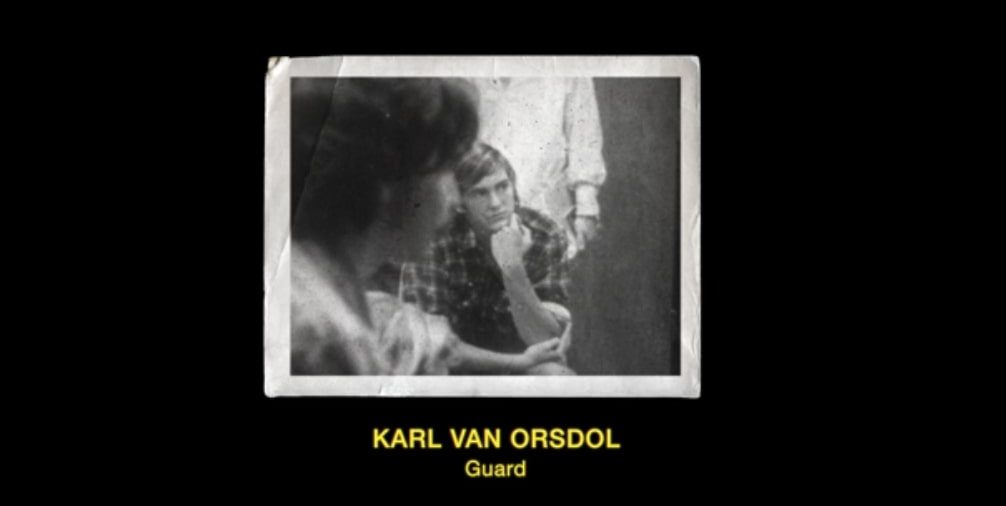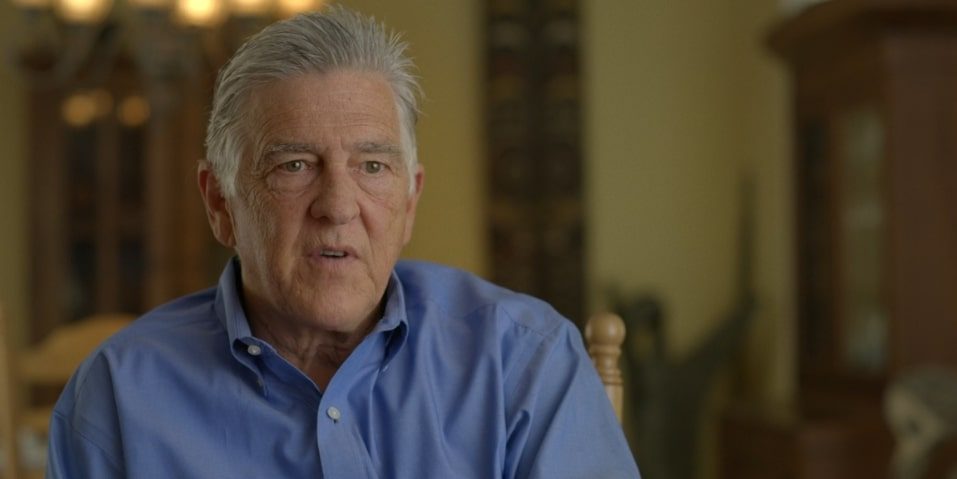The Stanford Prison Experiment remains one of psychology’s most controversial studies, exploring how ordinary people might adopt cruel behaviors when placed in positions of authority. But was it really just that, or something much darker? National Geographic’s ‘The Stanford Prison Experiment: Unlocking the Truth’ dives into the complex psychological effects of the study, interviewing various participants, including Karl Van Orsdol, who was assigned the role of a guard. Van Orsdol reflects on his actions and reveals whether the suffering of the “prisoners” still weighs on him today.
Karl Van Orsdol Recalled the Authenticity of the Experiment
In the early 1970s, Karl Van Orsdol was a young man looking to earn some quick money when he came across an advertisement for a study with paid participation. The opportunity seemed ideal, so he signed up, which led him to join the infamous Stanford Prison Experiment, which began on August 14, 1971. Selected at random to play the role of a guard, Karl wasn’t particularly excited about his assignment. However, as the experiment commenced, he was taken aback by the level of authenticity imposed on the “prisoners.” From fingerprinting to their prison-style clothing, the attention to detail struck him as surprisingly intense and immersive.

Karl described how, among the guards, there was a shared expectation of demanding respect from the “prisoners,” and each day seemed to escalate in intensity as the guards pushed boundaries further. Though he wasn’t the one directing or leading the group, he admitted to following others’ cues and participating in the unfolding dynamics. Before the experiment began, Professor Philip Zimbardo provided him with an overview, which Karl said subtly influenced the guards’ behavior and set a certain tone for their roles. Reflecting on it now, Karl feels that the experiment was over-sensationalized and questions its truthfulness and ethical handling. When he later reconnected with other participants, he joined the other guards in offering apologies to address any lingering grievances.
Karl Orsdol Went on to Become a Scholar of Environmental Science
Karl Van Orsdol has built a remarkable career since his time in the Stanford Prison Experiment. After earning a degree in Biology from Grinnell College, he pursued a Ph.D. in Environmental Science at the University of Cambridge. His career includes research roles with Uganda National Parks and the New York Zoological Society, where he contributed significantly to conservation efforts. Transitioning into the private sector, Karl served as a Senior Manager in Capital Markets at Deloitte from 1999 to 2003 and later became the Chief Global Strategist for Energy and Sustainability Management at Hewlett Packard Enterprise. His diverse career reflects his expertise in both environmental science and strategic management.
Karl Orsdol is a Well-Respected Climate Advisor Today
Karl Van Orsdol has also collaborated with several government agencies throughout his career, including the US Department of State. Notably, he served as an Energy and Environmental Policy Advisor for the African Development Bank, a role focused on guiding policies that support sustainable energy solutions and environmental practices across African nations. Since September 2015, he has been working as the Principal at Global Energy and Sustainability Advisors in Palo Alto, California, where he specializes in areas such as environmental compliance, energy management information systems, and renewable energy development. In the last four years, he has been more focused on climate change adaptation, community energy development, project evaluation and assessment, and energy management. This makes him a valuable resource in driving forward-thinking solutions in global energy and environmental practices.
Karl’s unwavering commitment to environmental sustainability and his work in shaping global energy policies have made him a respected figure in his field. He has spoken at international climate negotiations such as COP 24 and the COP climate meetings in Katowice. He has also authored influential publications like ‘Climate Resilience and Vulnerability in Two Indigenous Communities’ and ‘Mobilizing Technology, Transparency, and Human Networks for Deforestation-Free Supply Chains: Global Forest Watch Mid-Term Performance Evaluation.’ His work reflects a path that continues to inspire change and foster collaboration. As he continues to push boundaries in energy and sustainability, his passion for creating a more resilient and sustainable world remains the driving force behind his impactful journey.
Read More: Chuck Burton: Where is the Stanford Prison Experiment Guard Now?


You must be logged in to post a comment.